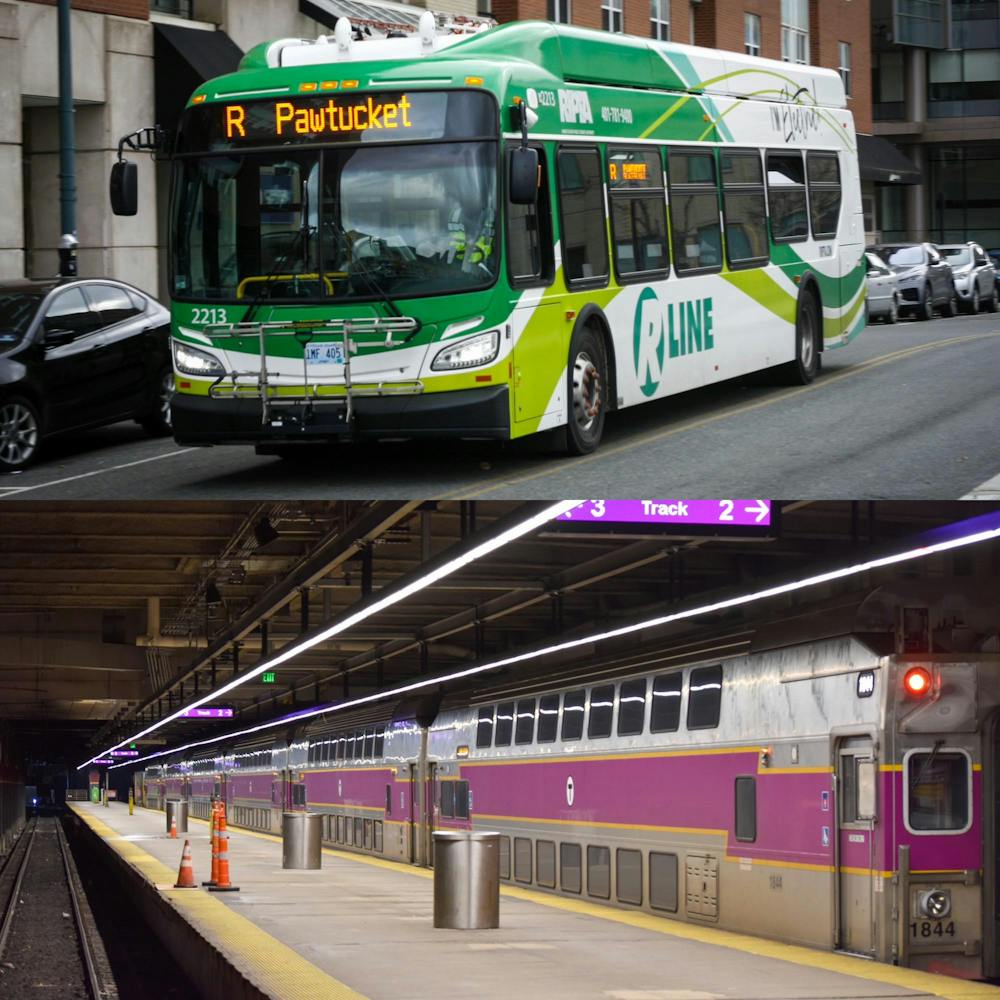On April 1, the Rhode Island House Committee on Corporations held a hearing on a bill that would begin the process toward implementing more robust fare integration between the Rhode Island Public Transit Authority and the Massachusetts Bay Transportation Authority.
Sponsored by Rep. John Lombardi (D-Providence), the proposed legislation would kick off consultations between RIPTA and the MBTA about the feasibility of expanding MBTA commuter rail passes to function as dual passes for both the MBTA and RIPTA transit systems.
During the committee hearing, Lombardi described the bill as a “cost-saving consumer protection measure for people in the less affluent communities in the state of Rhode Island.”
This is the ninth consecutive legislative session in which Lombardi has introduced this bill — but since 2017 it has never made it out of committee. “I’m trying to make (the bill) a priority, but I may be the sole voice out there,” Lombardi told The Herald. He added that fare integration also does not seem to be “a priority” with the Rhode Island General Assembly, which is why he thinks the bill has not had success.
Despite this lack of legislative progress, some integration efforts between RIPTA and MBTA have already occurred. The MBTA’s Providence Line commuter rail service, for example, currently connects Rhode Island to downtown Boston with service to Providence, Pawtucket/Central Falls, T.F. Green Airport and Wickford Junction, noted Lisa Battiston, the MBTA’s deputy press secretary. Monthly train pass holders traveling out of these stations can ride RIPTA without paying extra fares.
“MBTA monthly Zone 8, 9 and 10 Commuter Rail passes are (also) accepted by RIPTA as valid fare media on their bus routes,” she added.
If Lombardi’s proposed legislation is passed, this integration could be expanded to include all MBTA and RIPTA routes. But, the details of implementation are still uncertain.
“Should the bill come to pass, we would need to do a deeper look at the financial and technical feasibility,” said Sara Furbush, a spokesperson for RIPTA.
RIPTA and MBTA have already had conversations regarding the expansion of fare integration, she added.
Passing the bill is a particular concern for Lombardi because of his constituency, he said. Lombardi’s districts include Federal Hill, Olneyville and the Valley Street area. These neighborhoods include many “millennials, students and … a huge gay population” who value “alternative transportation,” he added.
“In order to make a functional economic engine, I think you have to have supporting transportation network around it,” Lombardi said. He also highlighted how Providence hosts many commuters to Boston, making robust public transit integration critical for this commuter population.
“Fare integration between RIPTA and the MBTA would simplify fare products and give passengers seamless movement between the two systems,” said Peter Brassard, the chair of the Rhode Island Association of Railroad Passengers.
Increased integration between the two transit systems would also make travel more affordable for passengers who use both transit services in their commute since they would no longer pay additional fares, said Steve Musen, the treasurer of RIARP. Musen added that this would be especially helpful for families with a single car.
Fare integration is also part of RIPTA’s Transit Forward RI 2040 master plan, aimed toward strengthening the state’s passenger transportation network. One of the plan’s core initiatives is to “make transit easier to use,” a goal that encompasses fare integration, among other measures.
RIPTA has made some strides in alignment with the plan, such as implementing fare capping. The agency is also working to improve signage and real-time customer communications, said Sarah Ingle, the executive director of planning at RIPTA.
But, “due to the complexity of the fare integration process, this will be a longer-term initiative,” Ingle said.
Pavani Durbhakula is a senior staff writer and photographer. She is a first-year from DC and plans to study IAPA and Public Health. In her free time, she enjoys baking, reading, and searching for new coffee shops.





